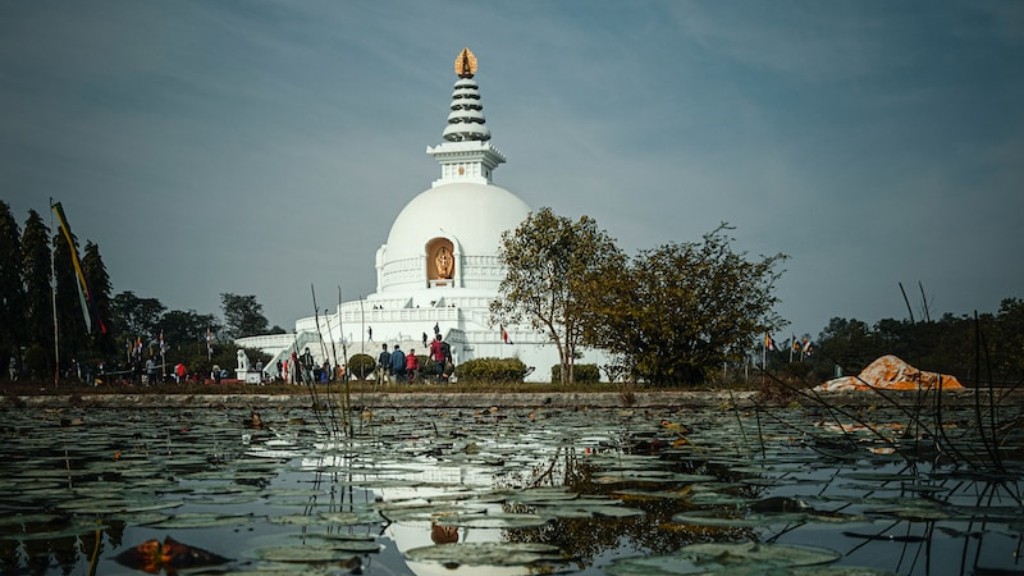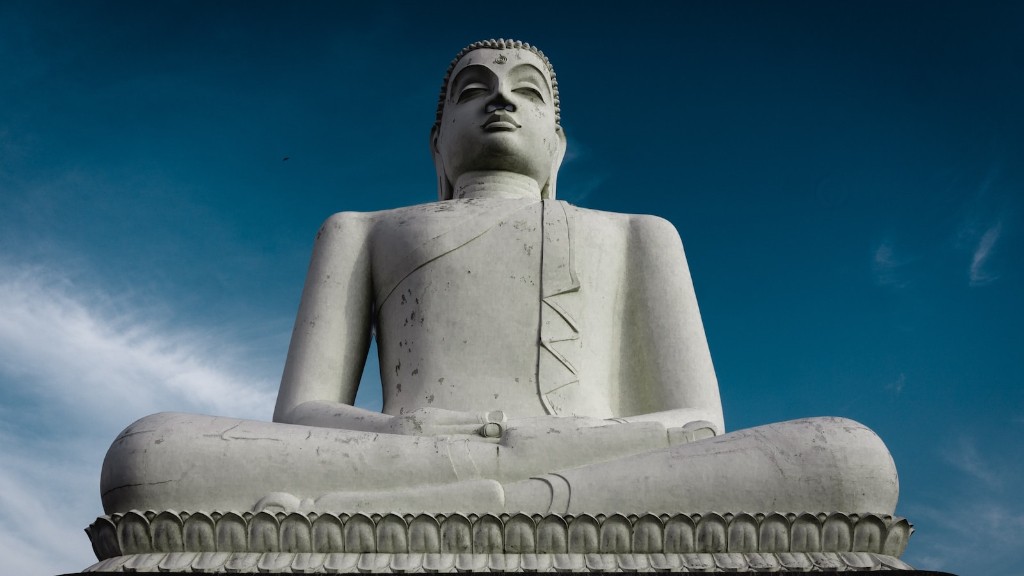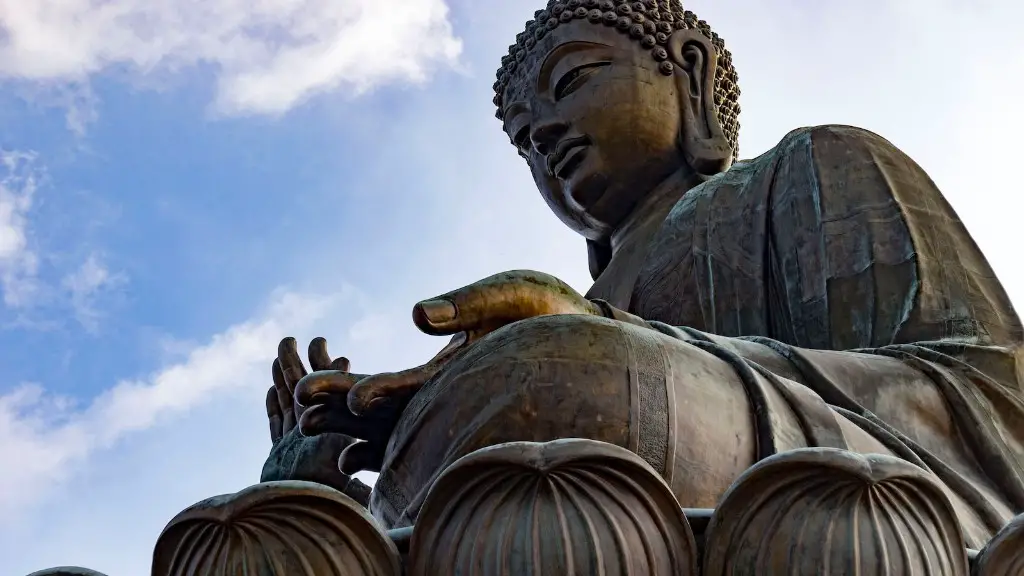Buddhism is a religion that is over 2,500 years old. It was founded by Siddhartha Gautama, who later became known as the Buddha. Siddhartha was born into a wealthy family in Nepal, and he had everything he could ever want.However, he was not happy. He left his family and went on a journey to find out what was causing his unhappiness. After years of searching, he finally found the answers he was looking for.
Buddhism teaches that the root of all suffering is attachment. attachment leads to craving, and craving leads to suffering. The way to end suffering is to end attachment. This can be done by following the Noble Eightfold Path. The Eightfold Path is a set of guidelines that help a person to live a moral and ethical life. Buddhism also teaches that everyone has the potential to become Buddha.
Buddhism is a religion that teaches that all beings are equal and have the ability to achieve enlightenment through personal effort and understanding. The main practices of Buddhism include meditation and ethical living.
What are the 3 main Buddhist beliefs?
Buddhism is a religion that is based on the teachings of Siddhartha Gautama. The main principles of this belief system are karma, rebirth, and impermanence. Buddhism teaches that karma, or the law of cause and effect, determines a person’s destiny. Good deeds lead to good results, while bad deeds lead to suffering. This belief in karma reinforces the idea of rebirth, or the belief that a person’s soul is reborn into another body after death. Buddhism also teaches that all things are impermanent, or subject to change. This includes the self, or the ego.
The Five Precepts are guidelines for living a moral and ethical life. They are:
1. Refrain from taking life
2. Refrain from taking what is not given
3. Refrain from the misuse of the senses
4. Refrain from wrong speech
5. Refrain from intoxicants that cloud the mind.
following these precepts will lead to a more peaceful and harmonious life.
Why do Buddhists not believe in god
Buddhism is a tradition focused on spiritual liberation, but it is not a theistic religion. The Buddha himself rejected the idea of a creator god, and Buddhist philosophers have even argued that belief in an eternal god is nothing but a distraction for humans seeking enlightenment.
Buddhism has always been opposed to the consumption of alcohol. This is because alcohol is seen as a substance that can lead to addiction and cause harm to oneself and others. In addition, alcohol is often seen as a barrier to spiritual development and enlightenment.
Do Buddhists believe in god?
There is no one specific path to enlightenment, but there are certain principles that can help guide a person towards it. The most important principle is the Four Noble Truths, which teach that suffering is caused by attachment to things that are impermanent, and that the way to end suffering is to let go of attachment. Other important principles include the Eightfold Path, which outlines a path of right living that leads to wisdom and compassion, and the Three Jewels, which are the Buddha (the teacher), the Dharma (the teachings), and the Sangha (the community of monks and nuns).
There are inherent and fundamental differences between Buddhism and Christianity. Christianity is at its core monotheistic and relies on a God as a Creator, while Buddhism is generally non-theistic and rejects the notion of a Creator God. Buddhism does not rely on a God to provide divine values for the world, instead relying on an understanding of the Four Noble Truths.
What are Buddhist not allowed to do?
The precepts are basic guidelines for living a moral and ethical life according to Buddhist principles. They are intended to help practitioners develop their character and progress along the path to enlightenment. The most important thing to remember about the precepts is that they are commitments to abstain from certain activities, not rules to be followed rigidly. This means that the precepts are not a set of strict rules that must be followed blindly, but rather a set of principles to help guide one’s actions.
Buddhism teaches that food should be prepared as a spiritual exercise, with attention to balance, harmony, and delicacy. All Buddhists are expected to follow the practice of conscious eating, and Buddha himself advised monks to avoid eating 10 kinds of meat for self-respect and protection: humans, elephants, horses, dogs, snakes, lions, tigers, boars and hyenas.
What is the Buddhist religious order
The sangha is the third of the Threefold Refuge, a basic creed of Buddhism. The Threefold Refuge is composed of the Buddha, the dharma (teaching), and the sangha. The Threefold Refuge is a way for Buddhists to find salvation.
The sangha is traditionally composed of four groups: monks, nuns, laymen, and laywomen. The monks and nuns are the people who have renounced the world and live in monasteries. The laymen and laywomen are people who have not renounced the world and live in the lay community.
The Threefold Refuge is a way for Buddhists to find salvation. The Buddha is the teacher who can show us the way to salvation. The dharma is the teaching that can guide us to salvation. The sangha is the community of people who are following the Buddha’s teaching and are on the path to salvation.
In Buddhism, there is no concept of punishment or reward. Instead, there is the concept of karma, which is the result of our thoughts, words and deeds.
Do Buddhists believe in afterlife?
Buddhist teaching views life and death as a continuum. This means that the consciousness (the spirit) continues after death and may be reborn. Death can be an opportunity for liberation from the cycle of life, death and rebirth.
Even though some people may think that Buddhists don’t celebrate holidays, many Buddhists actually do participate in the holiday season. Among Asian American Buddhists, three-quarters celebrate Christmas. On Dec 8, some Buddhists also observe Bodhi Day, which marks when the Buddha reached enlightenment.
What is the biggest sin in Buddhism
The term ānantarya karma refers to the most serious offences in Buddhism that, if committed, will lead to immediate disaster. Both Buddhists and non-Buddhists must avoid them at all costs. Some of the most serious offences include killing a Buddha, killing a bodhisattva, or causing disharmony in the sangha. Other offences include spreading false teachings, encouraging others to commit evil deeds, or engaging in black magic.
There is no definitive answer on whether or not coffee is permissible for Buddhists, as it falls into a grey area in terms of the fifth precept. However, most Buddhists believe that coffee in moderation is perfectly fine, as long as it does not interfere with the guidelines of morality set forth in the fifth precept. ultimately, it is up to the individual to decide if coffee consumption is in line with their own personal beliefs.
How many wives can a Buddhist have?
The Buddha’s advice on married life is mainly focused on how to live a happy and harmonious life with your spouse. He advised that couples should be understanding and patient with each other, and should always try to communicate openly and honestly. The Buddha also said that sexual relations should be based on love and mutual respect, and should not be used as a means to control or hurt each other.
When we pray to buddhas, bodhisattvas, and spiritual masters, we are invoking the enlightened qualities of our own heart and mind. By letting go of the ego’s resistance to humility, we can let go of the aspects of ourselves that are not enlightened and connect with our own inner wisdom.
What is the Buddhist way of life
Buddhists monks have a very strict daily routine that revolves around meditation, studying scriptures, and taking part in religious ceremonies. In order to live a life devoted to their religion, they live in special places called monasteries or Buddhist shrines. Here, they are able to find peace and quiet necessary for their contemplation and spiritual practice. Although their lifestyle may seem quite different from our own, Buddhists monks are some of the most devout and dedicated people in the world.
Any person can be a Buddhist. One does not have to be “born” into Buddhism, nor do one’s parents have to be Buddhists. One can be of any race, country, socio-economic background, gender, etc. People wishing to identify themselves as Buddhists typically participate in a ceremony known as taking refuge in the Triple Gem.
Conclusion
Buddhism teaches that the way to end suffering is to let go of craving and attachment. This can be done by following the Eightfold Path, which includes practices such as ethical living, meditation, and mindfulness.
Buddhism believes in the Four Noble Truths and the Eightfold Path. These are the basic principles of Buddhism that help guide followers on their path to enlightenment. Buddhism also teaches that all beings are interconnected and that through compassion and mindfulness we can achieve true happiness.





